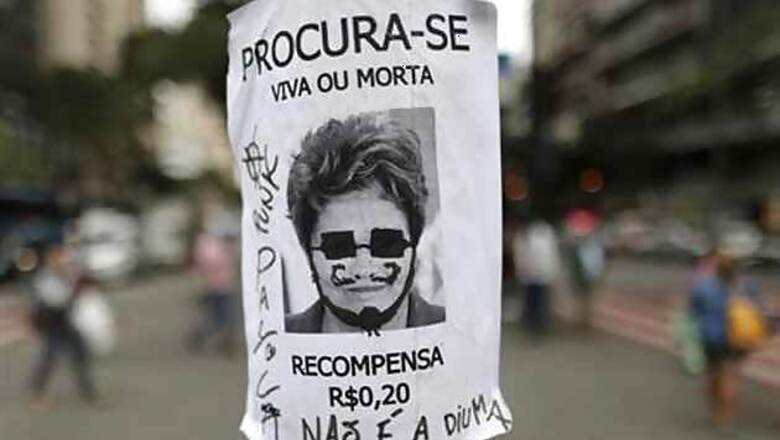
views
Sao Paulo: Brazilian President Dilma Rousseff on Monday proposed a popular referendum to embark on a sweeping political reform in response to the country's largest public protests in 20 years.
Rousseff called for a public vote to eventually amend Brazil's constitution as she sought to seize the momentum in a national debate set off by two weeks of increasingly disruptive demonstrations.
The president also laid out an agenda to cut taxes on public transportation costs, accelerate investment in hospitals and crack down on political corruption - recurring concerns raised by Brazil's nameless, leaderless protest movement.
"The streets are telling us that the country wants quality public services, more effective measures to combat corruption ... and responsive political representation," Rousseff said in remarks to a meeting of governors and mayors.
While vowing to crack down on a violent minority that has looted stores and vandalized government buildings, Rousseff praised the democratic spirit of most protesters and framed her agenda as addressing their concerns.
Still, a sluggish economy has left Rousseff with little room to maneuver the federal budget and protesters are unlikely to see rapid improvements in their daily lives. A constitutional reform by referendum could take years as the government must arrange a public vote and compose a constitutional committee to debate the overhaul of Brazil's representative democracy.
Rousseff proposed an additional 50 billion reais of investments to address the complaints about public transport that first set off the protests that have shaken markets and threatened her enduring popularity.
The mostly peaceful demonstrations peaked on Thursday, when about a million people took to the streets in cities across Brazil with occasional instances of violence and vandalism.
Recent days have been calmer but social media points to another round of protests focused around an international soccer match on Wednesday between Brazil and Uruguay in the city of Belo Horizonte.
The demands for better public services have raised concerns about looser government spending, which Rousseff sought to head off by introducing her agenda with a call for fiscal discipline.
The president reiterated her proposals to set aside future oil royalties for education and import doctors from abroad.
She may struggle to find new tax revenue for her agenda, however, as the economy struggles to gain steam, inflation is eating away at purchasing power, and rising interest rates are making consumer credit more costly. Two straight years of what many economists decry as fiscal slippage under Rousseff have made it even tougher to increase spending.




















Comments
0 comment